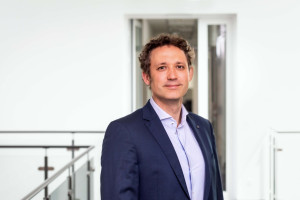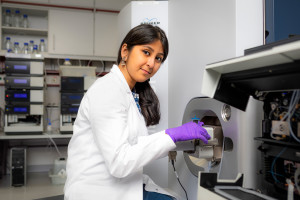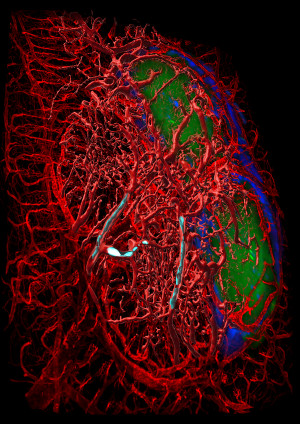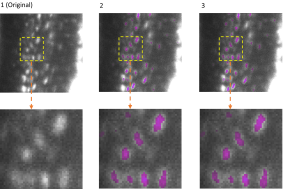Dortmund, 20th September 2021
Medical imaging generates enormous amounts of data that can neither be managed efficiently nor evaluated thoroughly without artificial intelligence (AI). Therefore, ISAS has expanded its Biospectroscopy department (headed by Prof Dr Matthias Gunzer) with a new working group. The junior research group AMBIOM - Analysis of Microscopic BIOMedical Images, which is funded by the Federal Ministry of Education and Research, aims to enable a high analytical throughput of microscope images. Led by Dr Jianxu Chen, a renowned expert in biomedical image analysis and deep learning, the working group plans to develop algorithms and methods (open source) by 2026 that will allow countless image data worldwide to be analysed automatically, quickly and economically. "My passion is to build ‘eyes and brains’ for computers to understand image data in medical or biological studies", says Chen. In the future, for example, the work at AMBIOM should allow broad-based new studies on the development of diseases and their consequences at the level of entire organs and organ systems. Furthermore, the AI analysis methods developed at ISAS will support doctors in making diagnostic and therapeutic decisions.
In his research, Chen has focused on developing scalable AI-based biomedical image analysis algorithms, especially for large 3D microscopy image data. Before joining ISAS, the 33-year-old worked for four years at the Allen Institute for Cell Science in Seattle. He recently moved to Dortmund with his family of four for his new job.
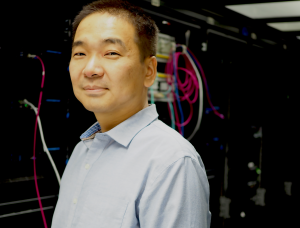
Dr Jianxu Chen has started his research at ISAS.
© ISAS
About ISAS
The Leibniz-Institut für Analytische Wissenschaften – ISAS – e.V. develops efficient and cost-effective analytical methods for health research. Thus, it contributes to the improvement of the prevention, early diagnosis and therapy of diseases. Overall, the institute strives to advance precision medicine by combining knowledge from different fields such as chemistry, biology, pharmacology, physics and computer science. The institute works closely with universities in Germany and abroad, for instance through joint appointments. It also cooperates with national and international partners from science and industry. ISAS was founded in 1952 and has around 200 employees from 20 nations.

